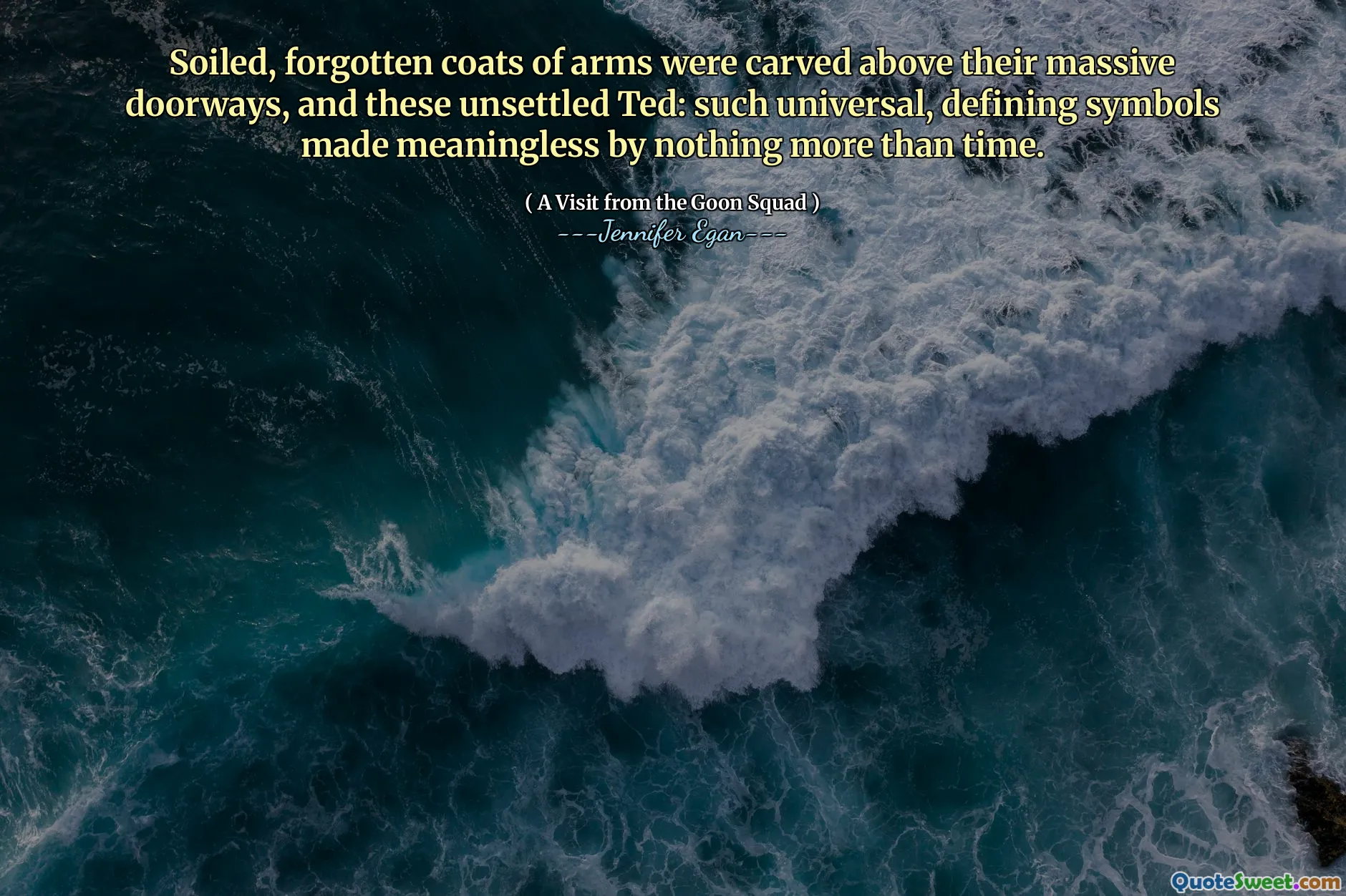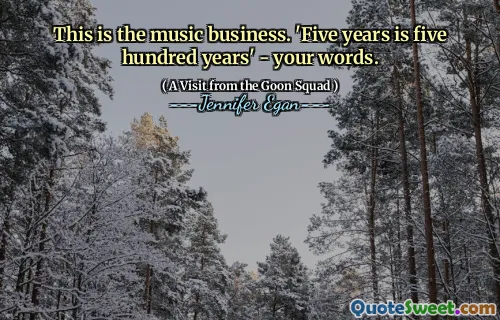
Soiled, forgotten coats of arms were carved above their massive doorways, and these unsettled Ted: such universal, defining symbols made meaningless by nothing more than time.
This quote poignantly captures the transient nature of symbols and the passage of time's imprint on cultural and historical markers. Coats of arms, once symbols of identity, honor, and lineage, are here described as 'soiled' and 'forgotten,' implying their decline from relevance and the wear of history upon them. The notion that these grand symbols are 'made meaningless' by the relentless march of time resonates deeply—what was once a proud representation now lies neglected or tarnished. It invites reflection on how societal symbols, whether emblems, traditions, or beliefs, are susceptible to erosion, reinterpretation, or obsolescence over generations. The imagery of carved coats of arms above massive doorways evokes a sense of grandeur and permanence, yet the acknowledgment of their decline reveals the fragility of cultural heritage. It prompts a awareness of the impermanence of human creations and the impermanence of societal significance. As time moves forward, what once held great meaning and power can become artifacts of the past, easily overlooked or forgotten. This prompts us to consider our contemporary symbols and their longevity—what will endure, and what will be rendered insignificant over the future decades? The phrase 'unsettled Ted' seems to personify a tension or unsettled nature of these symbols or perhaps a specific figure affected by this passage of time, adding layers of meaning about identity and legacy. Overall, the quote invites introspection about the ephemerality of significance, the loss of history, and the inevitable march of time reshaping cultural landscapes from monuments to memories.







